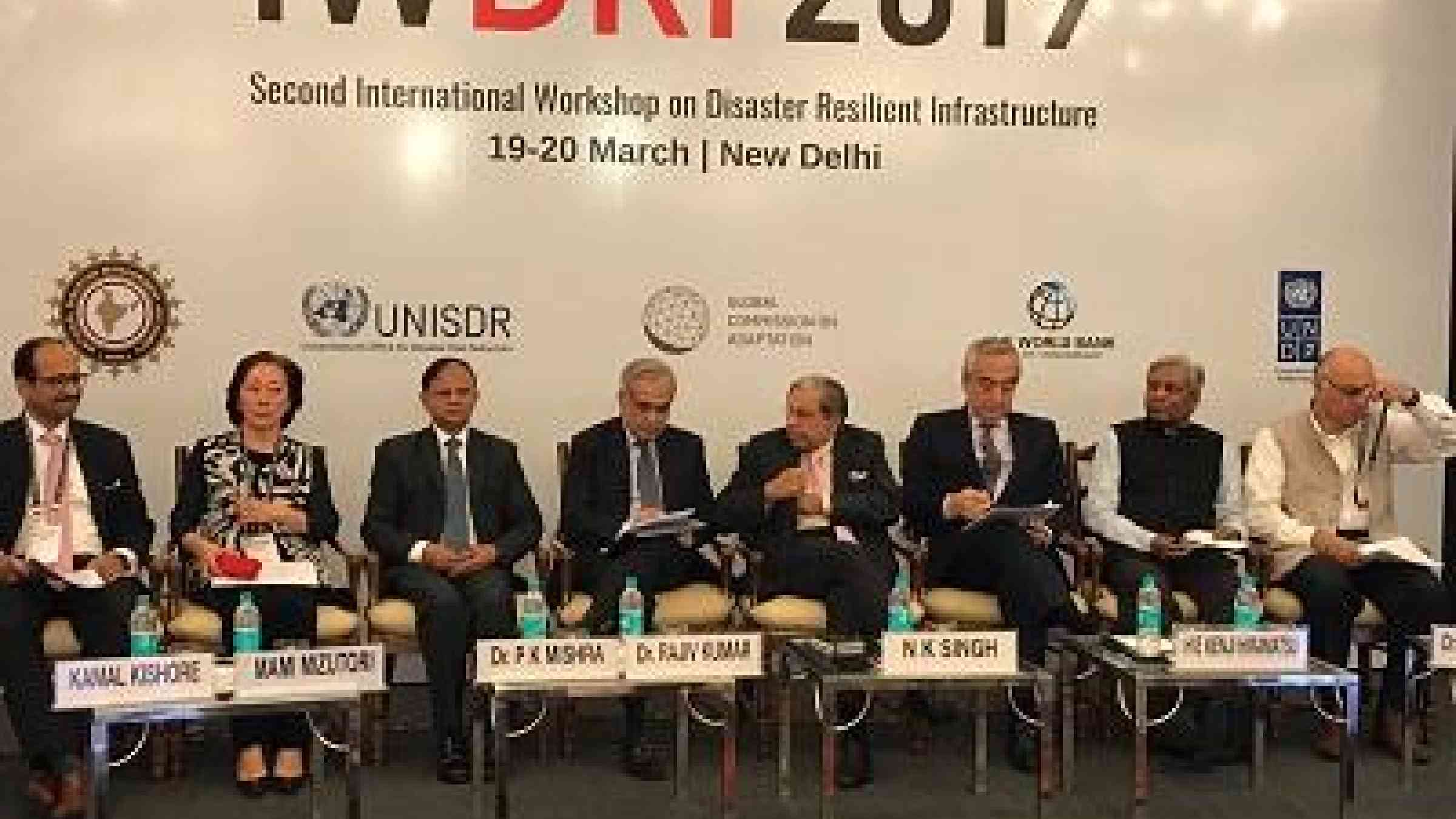'Now is the time to do bold things...'

NEW DELHI, 19 March, 2019 - Ambition on building resilient infrastructure needs to match the scale of the problem. That was the message to participants attending the opening today of the 2nd International Workshop on Disaster Resilient Infrastructure.
“Yesterday was the 4th birthday of the Sendai Framework. It is no longer a 15-year framework but an 11-year framework. This is the time to come up with bold initiatives. The time to think at the edges is gone, now is the time to do bold things,” said Kamal Kishore, of India’s National Disaster Management Agency which is leading an initiative to “co-create” a global Coalition for Disaster Resilient Infrastructure.
Three major examples of resilience building in India were cited by Dr. Junaid Kamal Ahmad, Country Director, World Bank Group: the world’s largest rural roads programme, the world’s largest dam improvement projects, and the efforts of the India State of Kerala not simply to rehabilitate the areas devastated by floods last year but to build back better.
He said India is an example of a country that is embedding resilience into how it approaches major infrastructure projects and there is a challenge to capture that knowledge and spread it further.
Dr. Ahmad made three recommendations for the future management of resilient infrastructure: to focus on creating centers of excellence, strengthening institutions to ensure accountability and encourage stronger relationships between local government and citizens to deal with shocks across the world.
Ms. Mami Mizutori, the UN Secretary-General’s Special Representative for Disaster Risk Reduction, welcomed the Indian government’s initiative to develop a Coalition for Resilient Infrastructure.
She said: “We are challenging ourselves on how we can disaster proof a world that lives under serious existential threat. We are advocating for change, and the change we seek is to live in a world where building to last becomes the norm, rather than trying to build back better after a disaster strikes.”
Mr. Kenji Hiramatsu, Ambassador of Japan to India, said that disaster risk reduction is one of the most important challenges. “A disaster resilient world demands disaster resilient infrastructure. The Sendai Framework aims at mainstreaming disaster resilient infrastructure in all sectors and Japan as chair of the G20 is ready to formulate proposals for quality infrastructure.”
Dr. PK Mishra, Prime Minister of India’s Office, said there was a need to ask how we can develop infrastructure in a way that contributes to the resilience of the poor. “Government or social infrastructure such as schools and hospitals is ultimately about people. We should follow an inclusive approach and connect with other global processes including climate action, the SDGs and the New Urban Agenda," he said.
Dr. Mishra declared: “the Government of India is deeply committed, we are in it for the long haul. There is a need to connect and at the same time we would like to see tangible results, concrete initiatives in a few months from now.”
Dr. Rajiv Kumar, Vice-Chairman of the National Institution for Transformation of India, said: “We attach huge importance to disaster risk reduction. We have to focus on how to involve the vulnerable and one of the ways is to get them involved in the process of developing disaster risk resilient infrastructure. It is key to involve civil society.”
Mr. NK Singh, chairman, 15th Finance Commission, India, said more work needs to be done to make public-private partnership investment in disaster resilient infrastructure more attractive in India.
The opening session was followed by a key note address from Prof. Jim Hall, Environmental Change Institute, University of Oxford, who pointed out that resilient infrastructure is fundamental to the achievement of all 17 Sustainable Development Goals including 121 of the associated targets.
The meeting is being attended by over 200 experts and government representatives from 33 countries including the majority of the G20 countries.